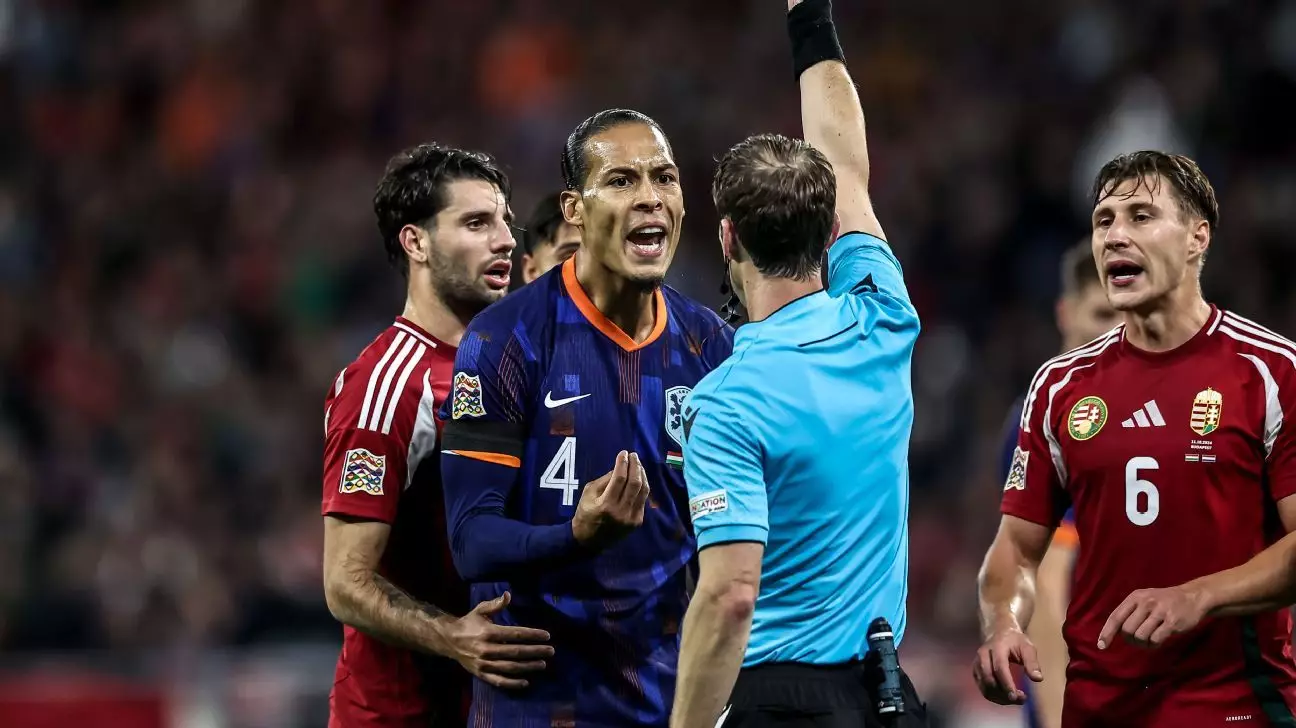Virgil van Dijk’s recent expulsion from a Nations League match against Hungary has stirred considerable discussion, as the Liverpool center-back experienced a first in his international career. The event transpired during a tightly contested game, which ultimately ended in a 1-1 tie. Van Dijk’s two yellow cards, received in a mere span of three minutes during the second half, encapsulated the volatile emotion of the match. The first card, controversially handed out for dissent, has left both Van Dijk and coach Ronald Koeman expressing dissatisfaction with the officiating during this critical encounter.
Van Dijk’s primary grievance stems from the initial yellow card, which he argued was unjustly awarded for simply voicing his concerns to the referee. With his team trailing, the defender approached the match official after a foul on his teammate Donyell Malen, feeling that the nature of the challenge warranted more severe punishment. Van Dijk articulated his feelings on the matter to ESPN Netherlands, emphasizing that his approach was respectful and well-intentioned. He implied that if even the team captain is silenced, the dynamics between players and officials become overly restrictive, potentially undermining the spirit of the game.
Coach Ronald Koeman echoed Van Dijk’s sentiments, expressing his bewilderment at the booking for a player who, as captain, should be allowed to communicate with the officials. Koeman’s comments highlight a crucial point regarding captaincy and authority on the pitch; captains are traditionally viewed as liaisons between their squads and the officiating crew. The perspective from both the player and coach emphasizes a disconnect that could pose issues not just for Van Dijk, but for the overall framework of on-field communication.
With Van Dijk set to miss the next fixture against Germany, the situation takes on even greater significance. The Dutch national team, currently sitting second in Nations League Group A3, faces a pivotal challenge against the group leaders. Koeman’s admission that he will not alter his squad further amplifies the stakes of the upcoming match. The absence of a key player like Van Dijk may have intricate ramifications for their tactical approach.
Despite the disappointment in his captain’s early exit, Koeman noted a strong performance by the team as they rallied for an equalizer late in the match through Denzel Dumfries. This resilience speaks to the ethos of the Dutch team, but it raises questions about their capability to cope without one of their most influential figures against tougher opponents like Germany.
Ultimately, the incident serves as a poignant reminder of the challenges associated with leadership in high-stakes situations. Van Dijk’s frustration illustrates the delicate balance that players must maintain between asserting themselves and respecting the authority of referees. The discourse surrounding this event may prompt necessary conversations regarding the expectations of captains in addressing officiating decisions, potentially inspiring changes in how such interactions are managed in future matches. As the team prepares for their next challenge, questions linger not only about strategy but also about how they can leverage their collective strength to compensate for the loss of their captain.

